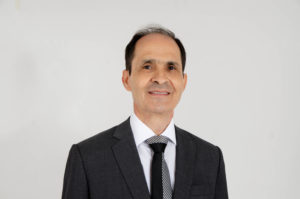 *By Ary Siveira Bueno
*By Ary Siveira Bueno
Three facts led me to bring this disquieting theme; two are recent and one is from 2022.
FACT I
In 2022, the HR Director of the Suzano Group at the time, Argentino Oliveira, posted the content below on his LinkedIn, which featured interesting comments.
“In 2006, “Passion for Winning”, by Jack Welch, former CEO of General Electrics, was published, a book that made many people's minds about performance evaluation.
Welch's model, later restructured as the “nine-box GE-McKinsey”, is based on the so-called “vitality curve”, or “yank and rank”. Generally speaking, the lowest performing 10% managers are fired every 6 months or a year, and the best 20% managers in the company are rewarded with bonuses and company stock.
In 21 years of its application at GE, the number of employees has dropped from about 400,000 to 200,000”. access in full.
FACT II
“Research by Infojobs and Grupo Top RH reveals that 58,3% of professionals feel less productive at the end of a face-to-face work day, while 21,3% feel more productive. For 64,4% of respondents, their quality of life worsened when returning to the office.
Culture and engagement at home office?
Despite leaders' fears that remote work could harm company culture, 45,8% say they completely disagree with this.
For more home office days, 85% of professionals would change jobs.
Most feel that going back to the office is any less productive and worsens the quality of life”.
Source: forbes/career
FACT III
Gartner article of 03/29/23 by Jordan Turner, with the title:
Employees seek personal value and purpose at work. Be prepared to deliver.
I reproduce excerpts from the article, which provokes reflection:
"In between layoffs and employees leaving their jobs in large numbers, it is clear that the management principles underlying the employee value proposition (EVP) are outdated”.
“The intention to leave or stay in a job is just one of the things people are questioning as part of the larger human story we are living through,” says Caitlin Duffy, research director at Gartner's HR practice.
“You could call it the 'Great Reflection.' ….It is essential to deliver value and purpose.”
“The past three years have been a catalyst for elevating personal purpose and values. Unfortunately, while 82% of employees say it is important for their organization to see them as people, not just employees, only 45% of employees believe that their organization actually sees them that way.”

Why is this change happening?
The pandemic and subsequent economic and political volatility have forced everyone to examine their choices about how to spend their time, energy and social capital.
Employees seek to get more value out of their jobs. Gartner calls this “The Human Deal”, which has five components:
- Deeper connections. Feeling understood through family and community connections, not just work relationships.
- Radical flexibility. Feeling autonomous in all aspects of work, not just when and where it is done.
- Personal growth. Feel valued for growing as a person, not just as a professional.
- Holistic wellness. Feel cared for by ensuring holistic wellness offerings are used, not just available.
- Shared purpose. Feeling invested in the organization by taking concrete action on purpose, not just through corporate statements.
In short: people seek purpose in their lives – and that includes work. The more an employer limits the things that create that sense of purpose, the less likely employees are to stay in their jobs. The era of the employment contract, in which the worker provided services only in exchange for monetary compensation, is over. Employees now expect deeper relationships, a strong sense of community, and purpose-driven work.
How to make your EVP more human-centric
Gartner research shows that a human-centric approach, which gives people more control over their work and work environment, also makes them more productive. But it requires employers to rethink their approach. As with all fundamentally transformative strategies, this will require strategic commitment, leadership, culture development, and carefully applied technology.
This is a general shift in performance management that goes beyond just measuring employee outcomes to reflect more context and empathy.
MY OBSERVATIONS
- O title gives newsletter is I believe that you too agree with the affirmation of the title;
- I consider to do one good People management, something complex and challenging;
- Communication and Endomarketing quality and robustness, are essential, to make front to the theme;
- At ASPR we replaced it a long time ago expressioncontributors by professionals and we opted right at the beginning of the pandemic by Home Office with free ride to the office, to some works and meetings with clients.
The three FACTS highlighted above, are a small sample of the reality that we experienced. However they are many, relevant and all must be considered to have Good People Management.
INQUIRING
We know that good solutions to problems and/or for any demands, start for diagnosing them very good.
for you, on application of the paragraph above, which aspects, levels of care/concerns and scope if he must have to to meet, give good answers, to the theme of that newsletter that I bring to reflection?
*Ary Silveira Bueno, Founder and Director of ASPR and President of Sineco do Brasil Digital para Todos
Notice: The opinion presented in this article is the responsibility of its author and not of ABES - Brazilian Association of Software Companies













